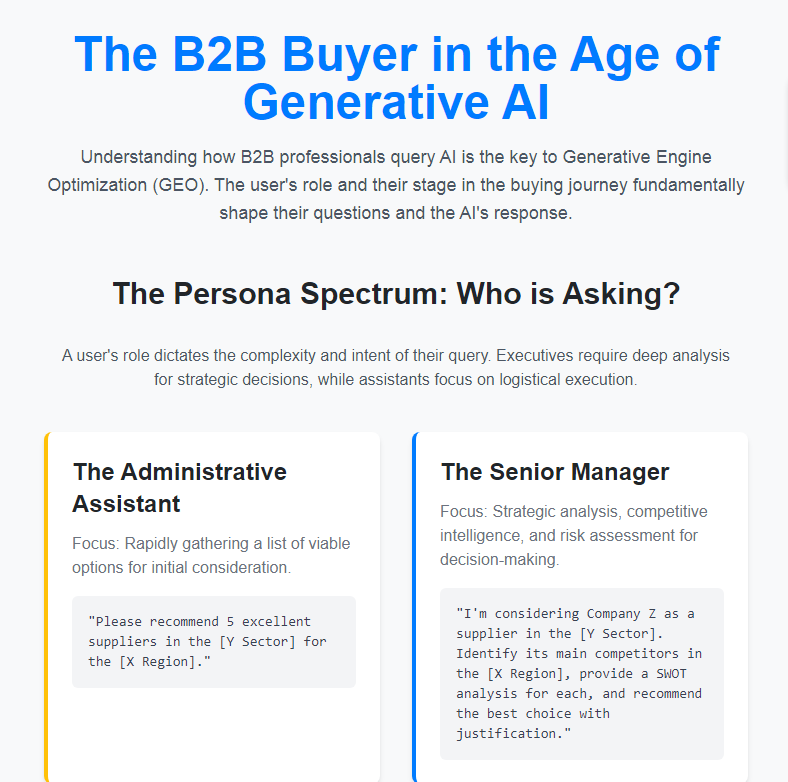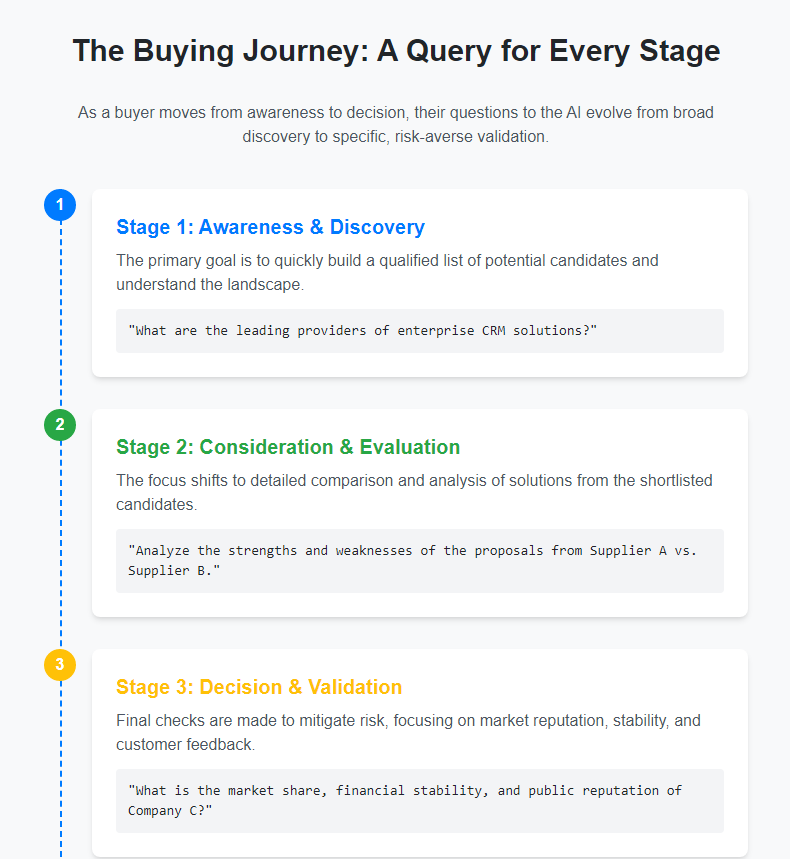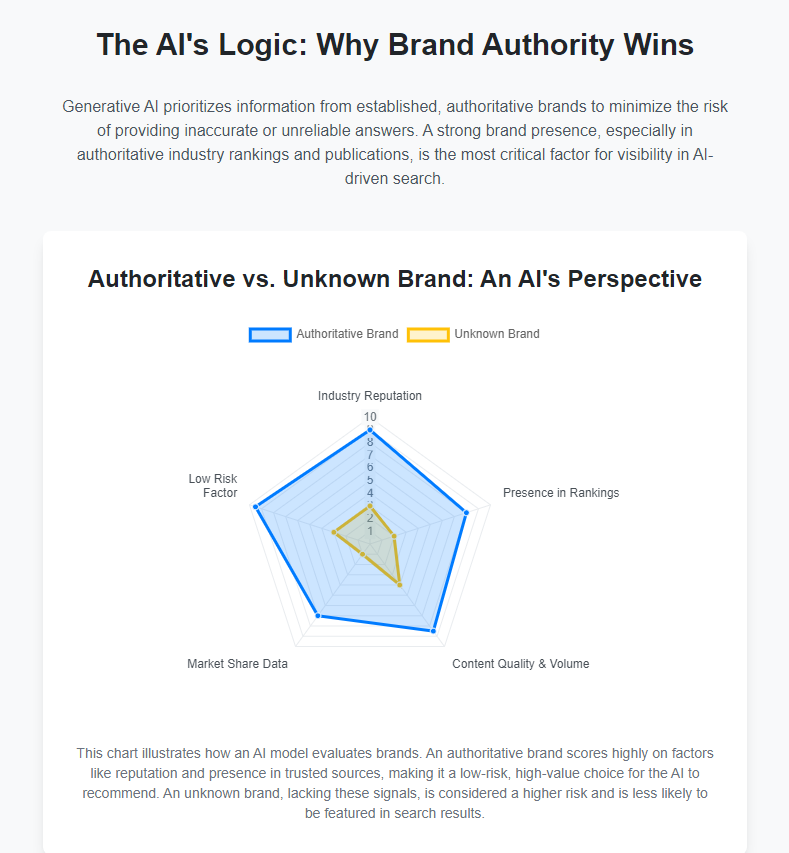The B2B Buyer’s Journey in the Age of Generative AI Search
- On September 12, 2025
- ai search buying cycle, ai search questions
The landscape of B2B procurement is undergoing a fundamental shift, driven by the increasing use of generative AI search engines. For a B2B enterprise, understanding what questions buyers are asking is critical. This process, known as Generative Engine Optimization (GEO), focuses on how a company’s brand, content, and authority influence AI-generated search results. The nature of these queries is primarily determined by two key factors: the inquirer’s role within their organization and their position in the buying cycle.
The Persona Spectrum: Who Is Asking?
The complexity and intent of a B2B query are directly linked to the user’s role. An administrative assistant, for instance, focuses on efficiency and preliminary research, while a senior manager requires deep, strategic analysis.

The Administrative Assistant: This persona’s goal is to quickly build a qualified list of options for others to review. Their queries are straightforward and direct.
Sample Query: “Please recommend 5 excellent suppliers in the [Y Sector] for the [X Region].”
The Senior Manager: This user is seeking strategic insights to make a complex decision. Their queries often involve competitive analysis and justification.
Sample Query: “I need to find suppliers in the [Y Sector]. I’m already considering Company Z. Please recommend its competitors, analyze their strengths and weaknesses, and provide a basis for my decision.”
The Evolving B2B Buying Journey
As a buyer progresses through the procurement process, their queries to the AI become more focused and specific.

Discovery Phase: The primary objective is to build a preliminary, qualified list of potential suppliers. Questions are broad and exploratory.
Sample Query: “What are the top enterprise CRM solution providers?”
Evaluation Phase: The buyer has a shortlist and is now focused on comparing options. They seek detailed analysis to assess the pros and cons of different solutions.
Sample Query: “Compare the strengths and weaknesses of the proposals from Supplier A and Supplier B.”
Decision Phase: The final stage is about mitigating risk and validating choices. The buyer is concerned with long-term reputation and stability.
Sample Query: “What is the market share, financial stability, and public reputation of Company C?”
The AI’s Logic: Why Brand Authority Matters
My observations suggest that generative AI models prioritize information from established, authoritative sources. This is a risk-averse strategy on the AI’s part; it is less likely to provide information on a brand it doesn’t know well. In the Chinese market, for example, AI heavily favors brand rankings from authoritative websites.

This is where GEO becomes paramount. Enhancing a brand’s influence and reputation in the industry is the most critical step to ensure it is included in the AI’s training data and recommendations. The key to success is to build a brand that AI models can trust, making it the low-risk, high-value choice for a buyer’s query.
Would you like me to elaborate on any of these sections, or perhaps explore strategies for improving a brand’s presence in AI training data?

 Unlock 2026's China Digital Marketing Mastery!
Unlock 2026's China Digital Marketing Mastery!